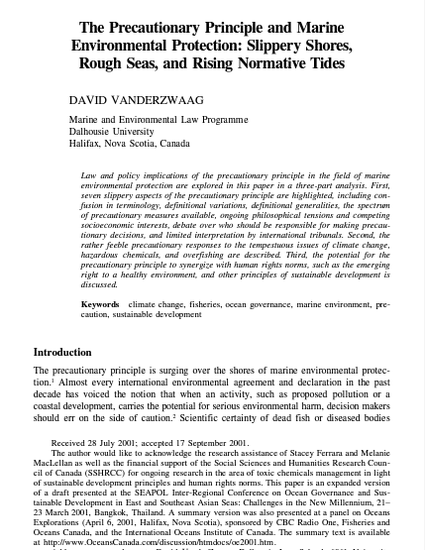
- climate change,
- fisheries,
- ocean governance,
- marine environment,
- precaution,
- sustainable development
Law and policy implications of the precautionary principle in the field of marine environmental protection are explored in this paper in a three-part analysis. First, seven slippery aspects of the precautionary principle are highlighted, including confusion in terminology, definitional variations, definitional generalities, the spectrum of precautionary measures available, ongoing philosophical tensions and competing socioeconomic interests, debate over who should be responsible for making precautionary decisions, and limited interpretation by international tribunals. Second, the rather feeble precautionary responses to the tempestuous issues of climate change, hazardous chemicals, and overfishing are described. Third, the potential for the precautionary principle to synergize with human rights norms, such as the emerging right to a healthy environment, and other principles of sustainable development is discussed.
